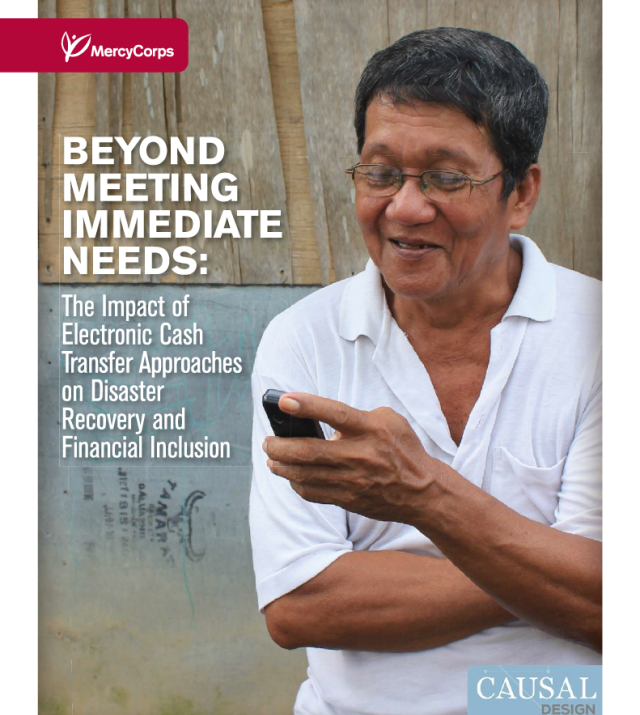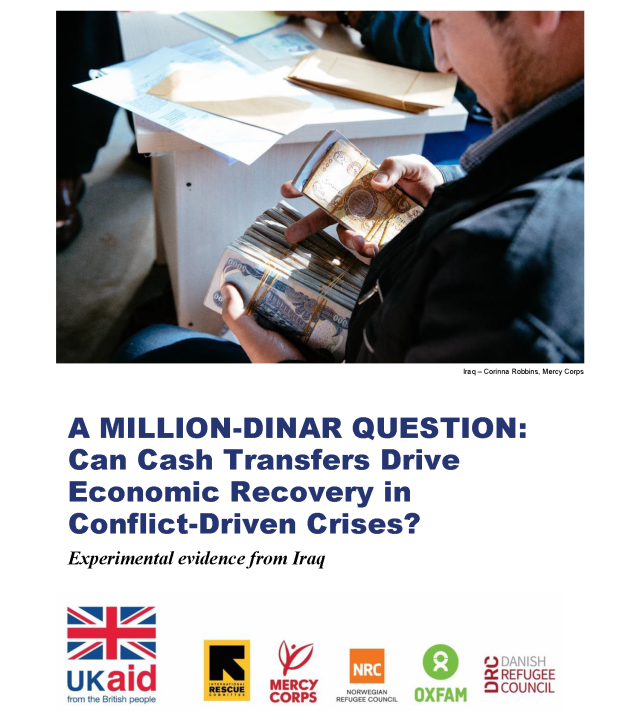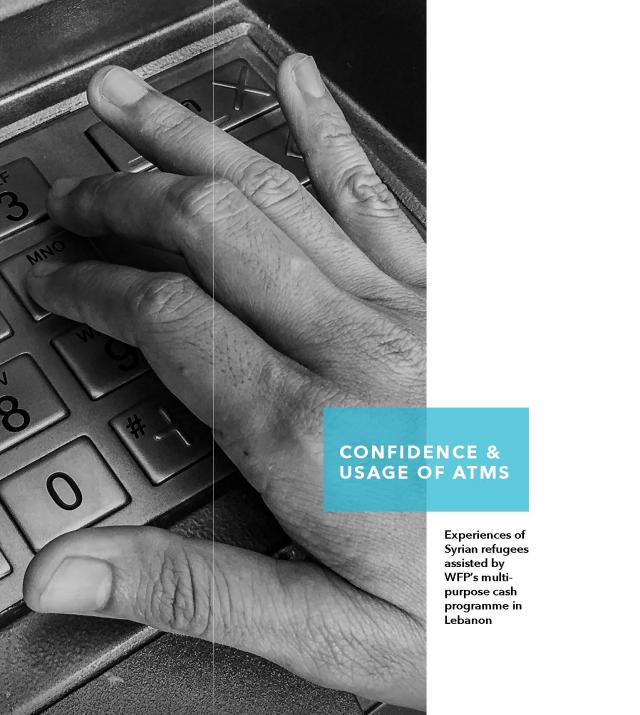
A Million-Dinar Question: Can Cash Transfers Drive Economic Recovery in Conflict-Driven Crises

This study looks at the question: Is cash equally effective in protracted crises, where conflict and insecurity are pervasive, markets and livelihoods are broken and state capacity to respond is limited? Can cash assistance be designed to both protect against the immediate effects of protracted crises and build resilience to future shocks, thereby reducing future humanitarian need? Specifically, given the extended length of need in protracted crises, how might humanitarian cash transfers be intentionally designed to improve both short-term coping and longer-term recovery?
The research team sought to answer these questions by testing the impact of deliberate variations in the design and delivery of cash transfers among conflict-affected Iraqi households. This study leveraged the Cash Consortium of Iraq’s (CCI) ongoing multipurpose cash assistance. The CCI is a consortium of five organisations that, collectively, has delivered over 160 million USD in cash assistance to over 500,000 households across Iraq since its formation in 2015.

